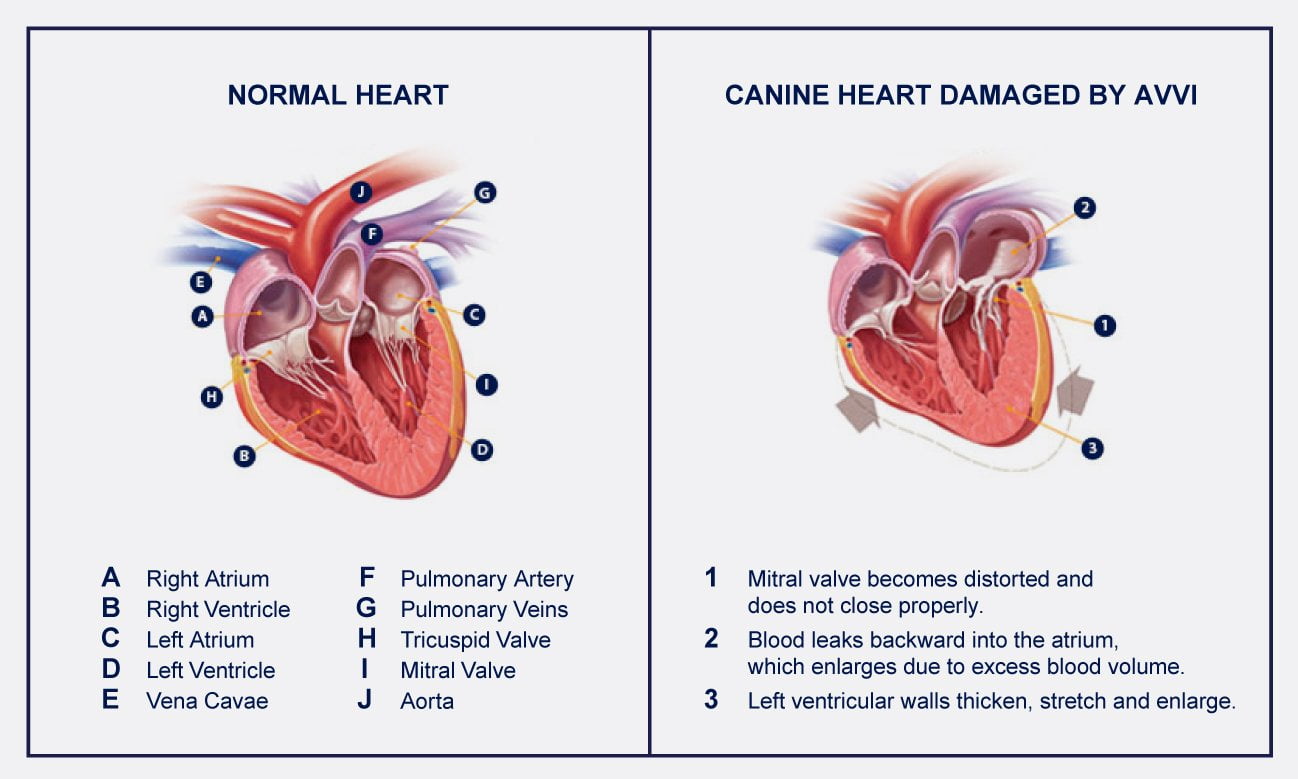HEALTH & WELLNESS

TRENDING

SIGN UP and Start Receiving
Our Monthly Newsletter,
The Chronicles
Congestive Heart Failure (CHF) as a Result of Atrioventricular Valvular Insufficiency (AVVI)

Did you know that canine heart disease is just as dangerous in dogs as it is in people?
HOW DOES THE HEART WORK?
The heart is one of the most miraculous “machines” that works like a pump and beats thousands of times per day.
- The heart is a combination of 2 pumps, and each pump has 2 chambers.
- The 2 pumps are divided by Left and Right sides.
- The blood enters the right side and is then pumped to the lungs, where the blood is oxygenated.
- The oxygen rich blood then flows into the left side of the heart, and from there it is pumped out into the body’s various organs.

WHAT IS AVVI?
AVVI is the most common cause of CHF in dogs.
AVVI is a degenerative disease that damages heart valve leaflets. This damage prevents heart valves from closing properly, allowing blood to leak backward into the atrium. This leakage eventually impairs heart function and circulation, leading to CHF.

DON’T LOSE HOPE
With early diagnosis and appropriate treatment and management, you increase your dog’s opportunity to live a happier, healthier and longer life.
WHAT ARE THE CAUSES OF HEART DISEASE?
Your dog can be affected by heart disease in several ways:
Acquired Heart Disease
- Disease that develops during the course of your dog’s life
- Accounts for 95% of all heart conditions
- The two principal causes of acquired heart disease:
– Valvular disease, known as atrioventricular valvular insufficiency (AVVI)
– Dilated cardiomyopathy (DCM)
Congenital Defects
- Heart problems that your dog is born with are usually diagnosed when your dog is a puppy
- Account for a very small percentage of the diagnosed heart-related problems
SIGNS OF CHF
Symptoms of atrioventricular valvular insufficiency (AVVI) or dilated cardiomyopathy (DCM) in the early stages are not readily observable. This phase can last for months or years. However, as the heart deteriorates and cardiac output decreases over time, AVVI and DCM ultimately lead to congestive heart failure (CHF) in dogs.
Some common clinical signs of CHF that may appear as AVVI or DCM progresses include:
- Breathing
- Difficulty breathing
- Increased heart rate
- Shortness of breath
- Coughing
- Behavioural changes
- Tires easily
- Withdrawn
- Exercise intolerance
- Hesitates to go for walks
- Decreased appetite and weight loss
- Weakness and syncope (fainting)
- Difficulty sleeping
- Restlessness, especially at night
When clinical signs of CHF appear, immediate therapeutic intervention is indicated.
There is no cure for CHF and surgical intervention is rarely practical in dogs, so veterinarians focus on improving clinical symptoms and prolonging life.
Related Articles













